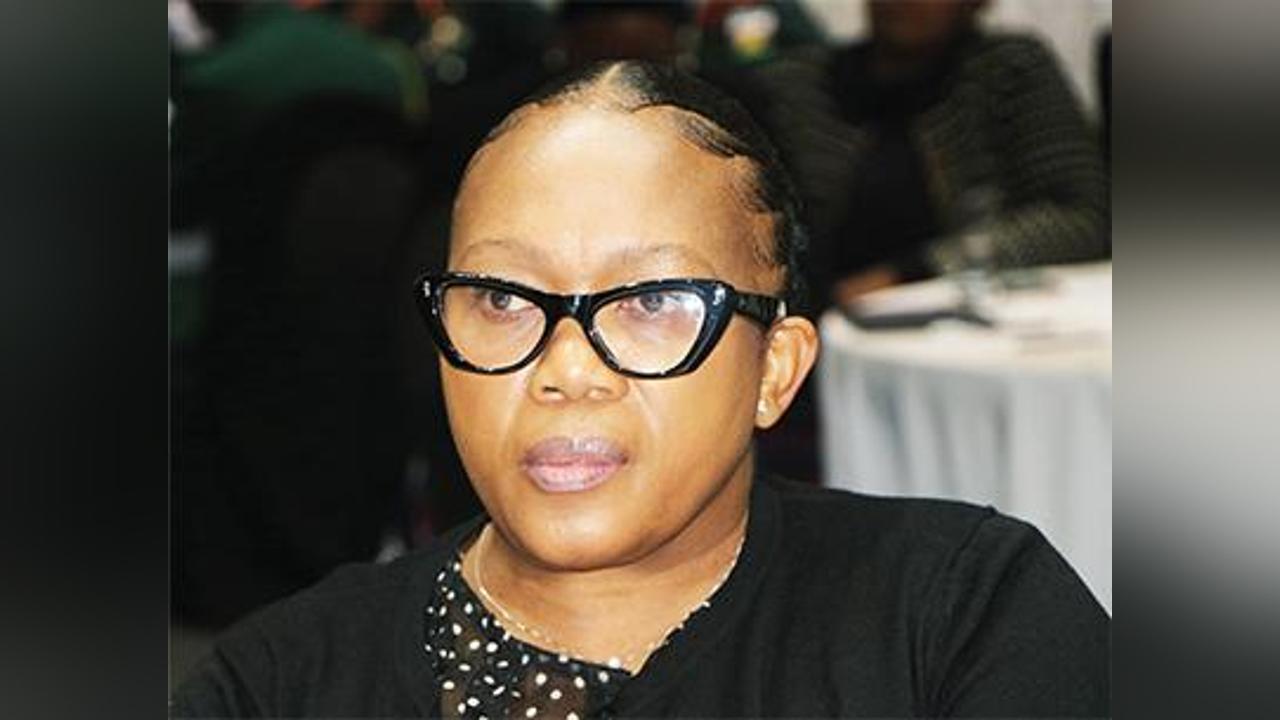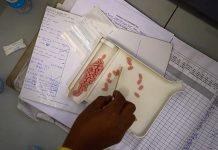Africa-Press – Lesotho. The Ombudsman Advocate Tlotliso Polaki’s recent report has unearthed a mental health patient’s welfare crisis at the Mohlomi Mental Hospital calling for concerted efforts to address the irregularities in that institution.
Chief among the concerns that the Ombudsman had highlighted in the report are the living conditions that continuously violate the patient’s human rights to a conducive environment that will facilitate their rehabilitation and recovery.
Section 10 of the Ombudsman Act No.9 of 1996 charges the Ombudsman in discharging the mandate of that office to “enter and inspect police, military or prison cells, government hospitals, asylum, or any other places or centers where any person is detained or kept whether for safe custody or in terms of any law”.
Established in 1965, Mohlomi Mental Hospital is a national referral hospital that houses patients from the mental and treatment observation units across the 10 districts in government hospitals. This mental institution provides services to both inpatients and outpatients.
“The forensic psychiatric unit provides forensic observation for patients referred from the courts by section 172 of the Criminal Procedure and Evidence Act No 9 of 1981 (CPEA), and offer[s] an indefinite detention of mentally ill offenders.
The referral for forensic psychiatric evaluation occurs under section 172(2) and section 172(3) of the CPEA. “The primary purpose of the observation is to decide whether or not particular patients have any material illness or defect, and to determine their competency to stand trial and criminal responsibility.
According to the Ombudsman, “The objective of the inspection was to establish whether the conditions prevailing at this institution are conducive or fit for human habitation.
This exercise was also pursued in line with the Office of the Ombudsman’s strategic objective aimed at intensifying advocacy for increased adherence by government authorities for the implementation of minimum standards in the promotion and protection of human rights “.
The Ombudsman further points out that the visit to Mohlomi Hospital allowed her to establish whether there have been improvements in the conditions of these institutions as per the Ministry of Health’s recommendations and by the anomalies flagged by the previous visit that was undertaken in 2015.
The report showed that after the refurbishments undertaken in 2001, this hospital was able to house 110 patients over the years. The report continues: “Under Lesotho’s national laws, and in particular, Section 8 of the Constitution stipulates that no person shall be subjected to torture or inhumane or degrading punishment or other treatment.
Section 27 of the Constitution enjoins Lesotho to adopt policies aimed at ensuring that the highest attainable standard of physical and mental health for citizens including the creation of conditions that assure all persons’ medical services, medical attention in the event of sickness, and improved public health.
Giving her general observation on the prevailing conditions at Mohlomi Mental Hospital, the Ombudsman pointed out that there is generally no overcrowding in this facility.
She however raised concerns on the congested forensic unit section. “Mohlomi seems to have been under prioritized and mental health services offered also seem to have perversely relapsed.
Mohlomi is neglected and the conditions under which patients live are compounded by a lack of resources and the fact that the MoH [Ministry of Health] does not seem to regard it as a priority.
“A lot of human rights violations were brought to light during this inspection visitation and they arose largely from the prolonged and systemic neglect of the mental health facility at a policy implementation level.
The conditions under which patients live at Mohlomi are not humane and a violation of their fundamental human rights as espoused in different domestic and international standard practices and covenants.
“The Ombudsman further established that under-resourcing of the facility in general and the lack of professional expertise had resulted in the systemic failures that perpetuate human rights abuses at this facility,” reads the damning 40-page report.
Advocate Polaki also notes that the prevailing “dire conditions” at the facility make it hard for the patient’s mental conditions to improve owing to “the poor quality care they receive “.
She lamented the under-resourcing of the facility in general and the lack of professional expertise that she said had resulted in the “systemic failures that perpetuate human rights abuse”.
“In addition, many of the patients are no longer supposed to be at the healthcare facility but because the technical advisory committee charged with the function of recommending to the King, the progress and action to be taken in connection with patients committed pending satisfaction of the King’s pleasure has not sat in many years, they are kept at the hospital longer than necessary and to their prejudice.
“It has further been confirmed that some of the patients were referred by the CPEA in the absence of a consultation with mental health officers and as such, patients with minor offenses have been incarcerated for elongated periods unnecessarily at the facility.
Elongated patients’ detention under His Majesty’s pleasure amounts to an inhumane treatment and an infringement of their rights under section 8 of the Constitution,” says the report.
It further says patients continued and indefinite incarceration leads to a deteriorated mental state and this has been attributable to the deterioration of their mentality.
The report goes on to highlight that prolonged incarcerations result in inhumane treatment that violates the provisions of the Constitution as well as the international treaties to which Lesotho is a signatory.
“The Ombudsman is of the view that this situation should not be allowed to perpetuate any further and patients who are deemed eligible for His Majesty’s pardon should be released from the hospital conditionally or unconditionally because of their stabilized mental condition.
The report aims at the MoH authorities that have “failed” the facility and “continue to cause unnecessary delays in provisioning of the much-needed assistance from the Partners in Health (PIH) which is alleged to have sought approval of the National Mental Health Policy Framework and the National Strategy in the past two years.
These two years the report indicates that there were eligibility requirements for funding interventions and the programs. “The Ombudsman established that the project supported by PIH is a seven-year project that is intended to strengthen the mental health services with existing primary health care platforms.
The project has support funding of more than M300 million but Mohlomi is unable to benefit therefrom for the mere reason that policy and strategy remain unapproved to date,” reads the report in pertinent part.
The Ombudsman said the report was submitted to the MoH’s Director-General for consideration and approval, but there is inaction on the part of those involved which the Ombudsman termed as “maladministration and the barriers that limit health partner assistance” saying they need to be dealt with as a matter of urgency.
The mental health program, the Ombudsman says will lead to improvements and changes in the welfare and health of Mohlomi patients in general. As the only psychiatric institution in the country, the report established that Mohlomi operates “without” psychiatrists.
It says that there are few specialists in this facility, who had since left for greener pastures. “It was established that the only psychiatrist that operated at the hospital left in 2016/2017.
The report says section 4 of the Mental Health Care Act No. 7 of 1964 mandates the handling of applications and references by and in respect of the patients. The report continues to lay bare the circumstances at this institution.
“The Ombudsman was informed that thus far, only three patients have since been released through court orders as a result of the MoH’s delay in reconstituting the technical tribunal. It also means that those patients who cannot afford are unable to approach courts of law in similar circumstances to secure their release.
“It has been established that the patients’ fundamental rights are violated and the delays caused by the elongated detention have led, to them suffering from bouts of severe stress and mental fatigue and of the depressive environment of having to co-exist and rub shoulders with mentally unstable or deranged patients despite their perfect bodily and mental harm health,” further reads the report.
The report has amongst others recommended the recruitment of qualified psychiatrists within six months, and that the MoH should engage qualified clinical psychologists for forensic unit assessment who will provide psychotherapy like cognitive behavioral therapy (CBT).
“Within 180 days from the issuance of this report, all patients should be medically assessed and examined by experienced medical officers to establish their present mental condition and suitability of their release or further detention upon whatever conditions.
“The MoH should further ensure that the mental health program is integrated with other existing communicable disease programs such as HIV/AIDS and Tuberculosis based on the fact that mental illness in HIV and Tuberculosis patients is said to generally affect their drug use compliance and treatment outcomes.”
For More News And Analysis About Lesotho Follow Africa-Press






